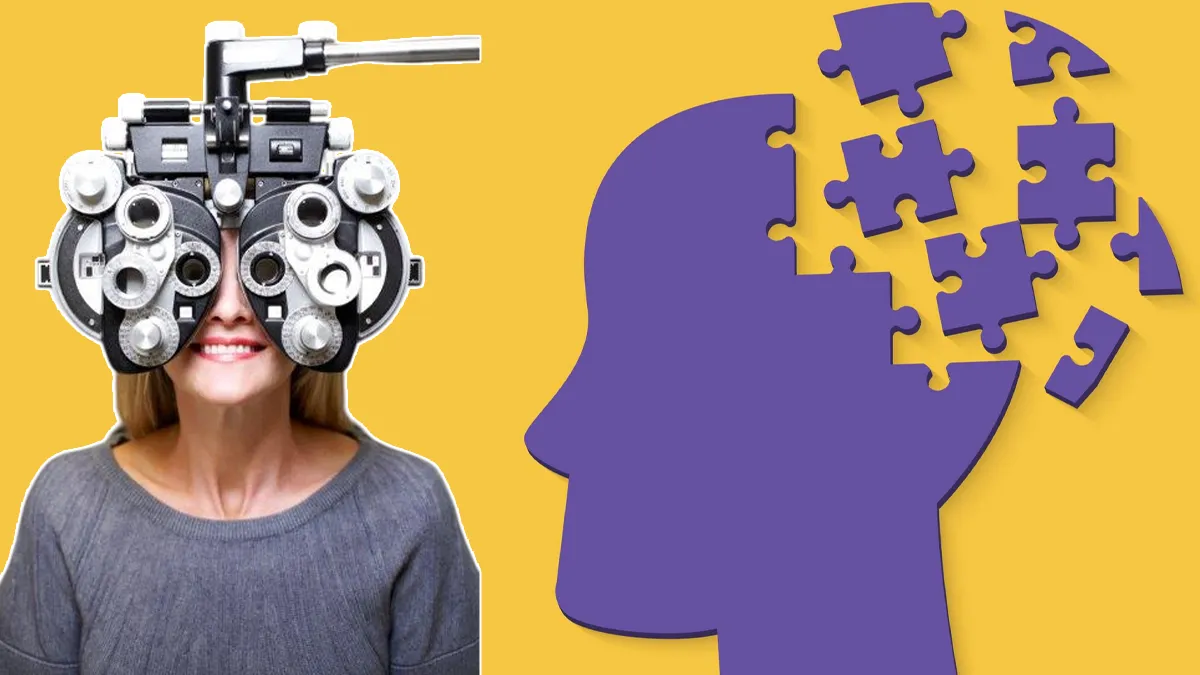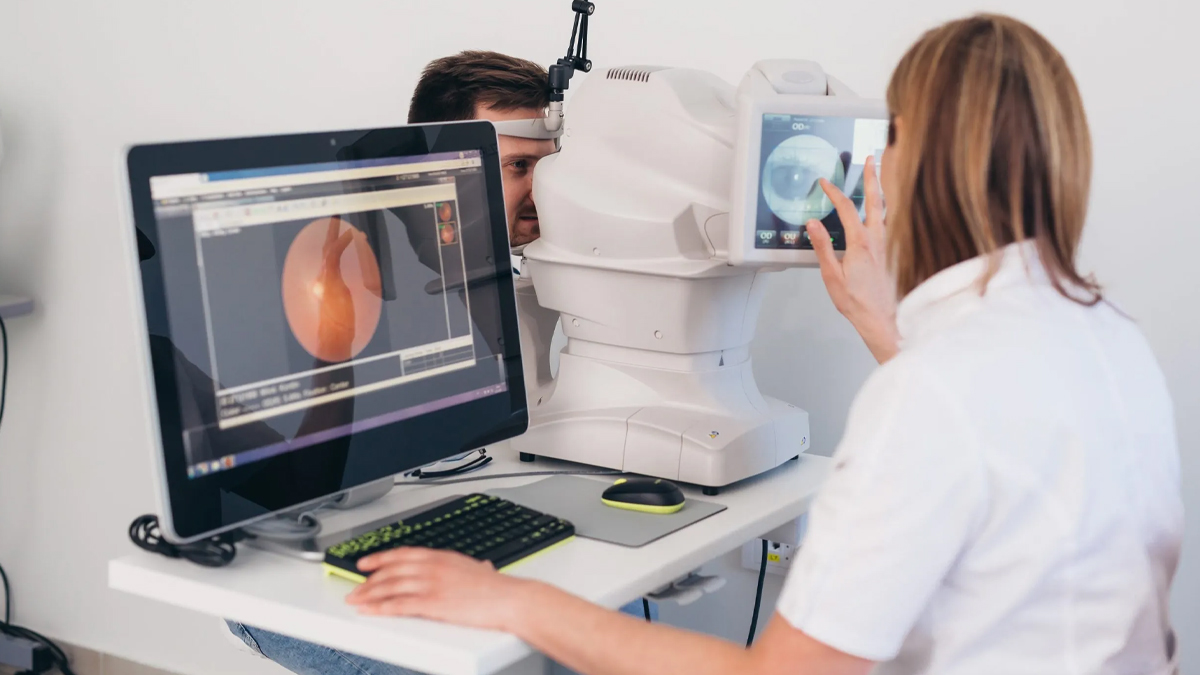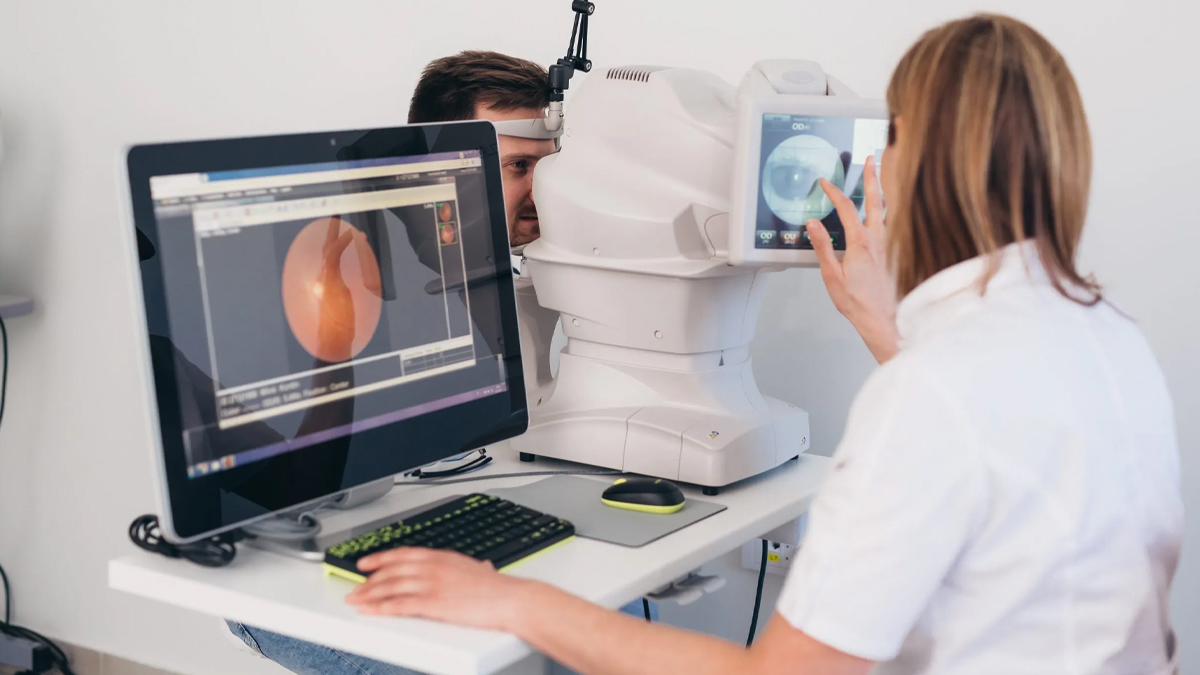
Alzheimer's disease is a severe disorder that afflicts millions of individuals all over the world. It slowly steals memory and thinking abilities, making everyday life challenging. Many worry about their risk or that of their loved ones. The condition is frequently silent until the symptoms are obvious, which may take the disease a long time to manifest. However, recent studies are raising the possibility that regular eye check-ups can give an early alert. Even before you start noticing the changes in memory or thinking, the indications of Alzheimer's could be seen in your eyes.
Table of Content:-
Recent Study Links Eye Exams to Early Alzheimer’s Detection![1 - 2025-09-12T124506.567]()
A recent study shows promising results about how eye exams could help spot Alzheimer’s risk early. Scientists discovered that the tiny blood vessels in the retina, the back part of the eye, change in ways that mirror what happens in the brain during the early stages of Alzheimer’s. The retina and brain share similar tissues, so an eye exam can give clues about brain health without invasive tests.
- The scientists worked with mice that had a genetic mutation called MTHFR 677C T that is present in up to 40 per cent of individuals.
- The retinas of these mice had abnormal blood vessels, as was the case in their brains.
- This implies that in the future, the doctors may be able to conduct a special eye image to indicate the risk of developing Alzheimer's before any symptoms emerge.
- The procedure is known as optical coherence tomography angiography (OCTA), whereby fine scans of small vessels in the eye are taken.
ALSO READ: Can Bad Mouth Health Cause a Heart Attack? Here Is What A New Study Finds
Why The Retina Matters![2 - 2025-09-12T124508.450]()
- It is the retina that is easier to see compared to the brain. Through the pupil, physicians have a direct view into blood vessels and nerve tissue.
- Alterations in retinal vessels, twisting, narrowing and a decrease in branching decrease the ability of blood, oxygen and nutrients to reach the ischemic part of the retinal vessel. The same occurs in the brains of models of Alzheimer's.
- By tracking both retinal and brain changes in the mice, researchers saw that the same patterns show up in both places. That adds weight to the idea that eye exams may be useful indicators.
What This Could Mean for Humans
- If humans show similar vessel changes in the retina early on, simple eye scans could become screening tools. Eye doctors could flag risks before symptoms like memory loss begin.
- People with the MTHFR 677C>T mutation might be especially important. Because the study found that this variant in many mice showed early vascular changes.
- These eye changes could give a 10 or 20-year head start. Earlier detection might lead to early lifestyle changes, treatments or preventive interventions.
Warning Signs to Watch Beyond Eye Exams![2 - 2025-09-12T124508.450]()
While eye exams can help detect signs, it’s important to watch for other early Alzheimer’s symptoms as well. These include:
- Trouble remembering recent events
- Difficulty solving simple problems or making decisions
- Changes in mood or personality
- Struggling to find the right words during conversation
- Early detection is key to managing Alzheimer’s, and combining eye tests with awareness of symptoms can help get ahead of the disease.
Conclusion
Routine eye exams hold new promise as a simple way to spot early signs of Alzheimer’s disease. The retina gives doctors a unique and accessible window into brain health. While research continues, this breakthrough could lead to earlier diagnosis and better care. Paying attention to your eye health might just be the first step to protecting your memory and mind.
How we keep this article up to date:
We work with experts and keep a close eye on the latest in health and wellness. Whenever there is a new research or helpful information, we update our articles with accurate and useful advice.
Current Version
Sep 12, 2025 14:34 IST
Published By : Vivek Kumar


